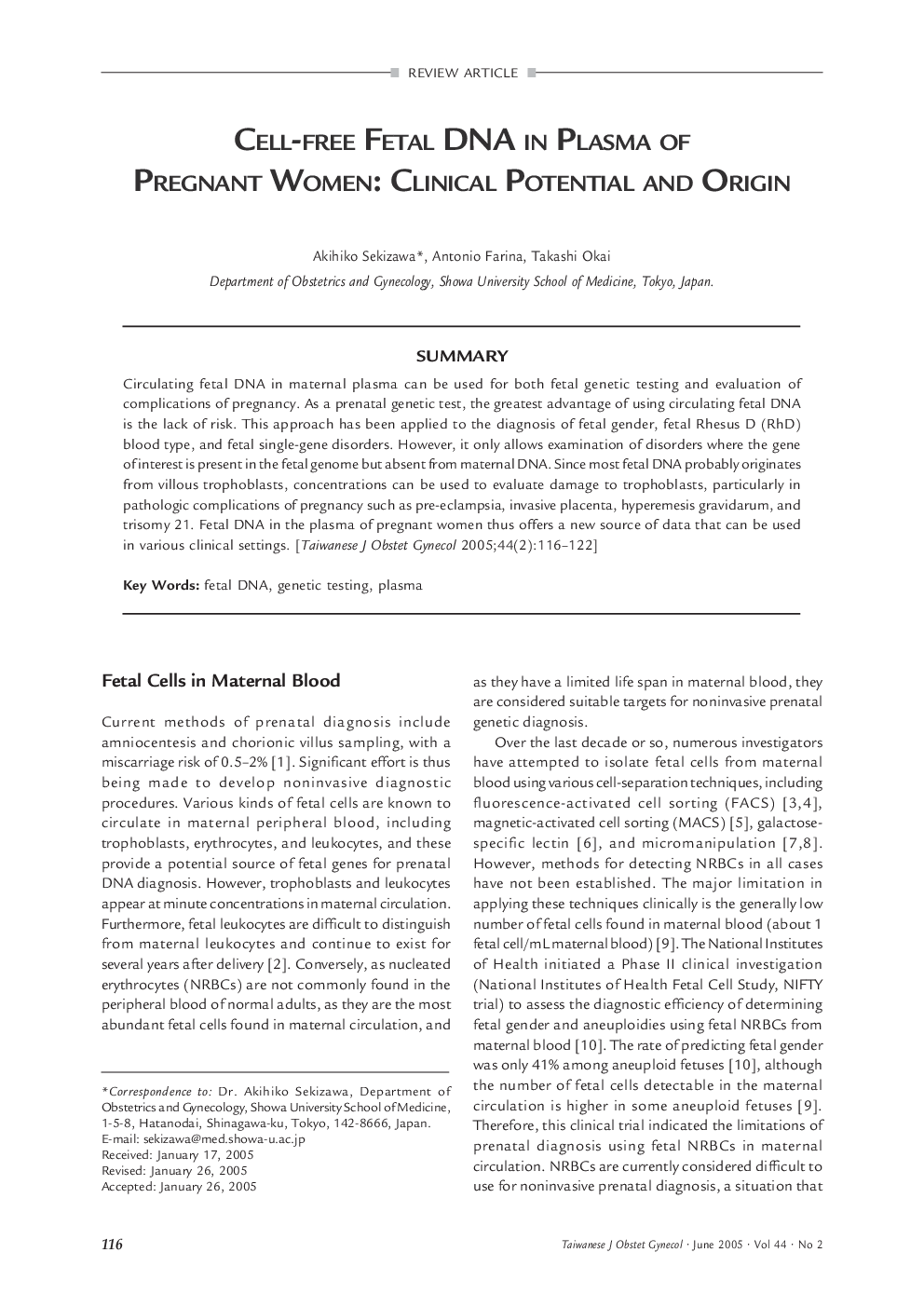| Article ID | Journal | Published Year | Pages | File Type |
|---|---|---|---|---|
| 10070322 | Taiwanese Journal of Obstetrics and Gynecology | 2005 | 7 Pages |
Abstract
Circulating fetal DNA in maternal plasma can be used for both fetal genetic testing and evaluation of complications of pregnancy. As a prenatal genetic test, the greatest advantage of using circulating fetal DNA is the lack of risk. This approach has been applied to the diagnosis of fetal gender, fetal Rhesus D (RhD) blood type, and fetal single-gene disorders. However, it only allows examination of disorders where the gene of interest is present in the fetal genome but absent from maternal DNA. Since most fetal DNA probably originates from villous trophoblasts, concentrations can be used to evaluate damage to trophoblasts, particularly in pathologic complications of pregnancy such as pre-eclampsia, invasive placenta, hyperemesis gravidarum, and trisomy 21. Fetal DNA in the plasma of pregnant women thus offers a new source of data that can be used in various clinical settings.
Keywords
Related Topics
Health Sciences
Medicine and Dentistry
Obstetrics, Gynecology and Women's Health
Authors
Akihiko Sekizawa, Antonio Farina, Takashi Okai,
